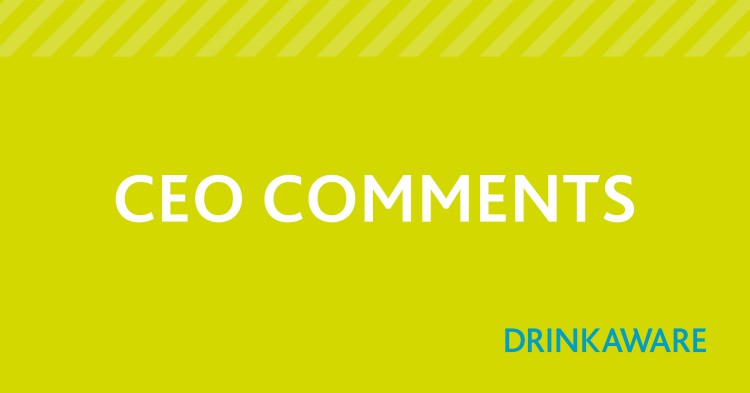In the current climate we are awash with advice and opinions on how we “should” behave. And we are very conscious of the impact of our behaviour on, not just our own individual lives, but also on our community’s wellbeing too.
Our own health, public welfare and societal wellbeing are all intertwined. We all effectively have ‘skin in the game’, and we all therefore need to play our part. That brings a pressure, to make the right decisions and the right choices. Drinkaware helps people do that, by building bridges, capacity and trust:
BRIDGES
When it comes to decision making, be that in work, at home, or in general, the focus is often on the barriers. But if instead we look for bridges, we can build much needed resilience. Information bridges thought and action, and our confidence in the advice we hear is important: Is it possible? Will it be effective? Is it acceptable ie do we see a clear value in doing it? Also important is the implicit and explicit authority of the advisor: Do they have the trust and credibility to make these suggestions?
We know from our work on human behaviour, that people like to take shortcuts. Quick decisions can be founded as much on bias and popular opinion, as they are on fact. And contrary to classic economic theory, not every choice is intentional.
Drinkaware therefore balances supporting the formation of good intentions, with making the follow-through actions easy, accessible, social and timely. We aim to be realistic so our advice often suggests small steps that encourage, rather than judge, people’s drinking behaviour. Our tips are pragmatic and take into account that we are social creatures who default to the social norms of our day. So we pre-empt occasions when we know people drink – bank holidays, sunny evenings, celebrations, etc. – communicating a positive message at an appropriate and pre-behaviour time.
CAPACITY
The end goal of health promotion organisations, like our own at Drinkaware, is the greater good. Equally though, it is important to respect, and speak to, people’s autonomy and their freedom of choice, to make the healthier choice, the easier choice. We believe in the importance and value of supporting people’s development of the capacity and skills to choose, and act on, positive behaviours.
By focusing on empowering people to make good choices, we are supporting their self-esteem, their control, and their agency over themselves and how they live their lives. We are effectively encouraging the development and adoption of healthy behavioural life skills. And in doing so creating a knock-on effect within that individual’s community and social circle. We do this through our information and education programmes, and by supporting on-the-ground health and education professionals to facilitate positive behaviour change around alcohol within their communities.
TRUST
Change does not happen in isolation, so what conditions and context do we need to make the positive change happen? Good policy, with public health at its core, as well as broad oversight of collateral consequences in its peripheral vision, is key. As is an environment that promotes societal wellbeing. And supporting and amplifying the effect of both, are the behavioural nudges, the public engagement and the alcohol education that Drinkaware delivers.
Trust is everything, because without it, people won’t listen. They won’t register or respond, and they won’t act. It is the dual integrity and trustworthiness of the message and the messenger, that gets the best results. At 89%, public awareness of Drinkaware “to provide trusted information on alcohol” (Behaviour & Attitudes 2020), coupled with tens of thousands of interactions with the charity every month, Drinkaware is proud to have both.


